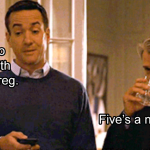
To say that times feel tough, financially, right now is an understatement. The cost-of-living situation in Australia is dire, and there are recession warnings around the world. Recently the World Bank warned of devastating consequences to global stability “as more countries fall into recession,” and eight in ten Australian business owners believe a recession is imminent in the next six months. But regardless of whether we enter a recession in Australia (there is a technical definition that must be met), it’s clear something needs to change. The question is: what?
We asked four economists with different specialties for their take on what’s causing these tough times and how it could be fixed. Here’s what they told us…
Q. Cost-of-living pressures are scary right now, and feel like they will keep getting worse. How did the Australian economy get here?
Kristen Sobeck, Senior Research Officer at the Tax and Transfer Policy Institute (TTPI): “The impact of COVID-19 has resulted in a lot of funky things. The first of which is that a huge amount of households had not much to do – so a lot of them have saved [a lot]. And the government also had a huge fiscal response to help households. As a result, we’ve seen a huge acceleration in terms of growth… All of these impacts have had the effect of increasing the demand for goods for services, and led to a very, very tight labor market.
Normally, when you’ve got an economy that’s heating up and inflation prices increasing, you have the Reserve Bank which is going to step in and start by, gently, increasing interest rates to slow things down before inflation gets out of control. But we have this complex additional factor: the war on Ukraine. So the inflation is caused by lots of things: lack of monetary policy, low interest rates, coupled with a huge financial injection into the pockets of households by the government, making lots of demand and prices go up.”
Dr Diaswati Mardiasmo, Chief Economist for PRD Real Estate: “The main reason why the recession is on its way is because there’s a very big imbalance between the increase in living cost and in the increase in wage growth. In Australia, the latest reading [of inflation] is about 6.8%. Whereas our average wage, whether it’s public or private, is anywhere between 2.3% and 2.5%. Inflation has been impacted by the chain of events from the Ukraine and Russian war, which impacted a lot of the oil supply, and therefore rising our cost of living. There’s also China still having a zero COVID policy, which stops a lot of goods imported and exported out of China. If a port has one COVID case, then the whole port is closed for isolation and that can take weeks. Our supply chain is still very much dependent upon that.”
Illiana Jain, associate economist at Moody’s Analytics: “The combination of poor consumer sentiment and rising inflation creates a possibility that households will reduce their spending and the economy will contract as a result. The Australian economy is in good shape so a [true] recession is unlikely. The labour market is strong – the unemployment rate is the lowest it has been since the 1970s. Wages are now rising faster than they have for years. Households also have some pent-up savings to draw from. All this will help Australians weather storms that may come ahead.”
Bradley Rogers, President of the Australian Economics Society ACT: “We’ve had a couple of years of breakdown of global economy and transport and movement of goods. It’s caused serious damage to the normal market economy, which in turn required the governments of the world to fund support for the community, so they can pay their bills. That has caused big fiscal monetary problems.”
Q. How do you think the RBA is handling the current economic climate?
Kristen Sobeck: “I think the best RBA is one that makes its decisions independently of political parties and external processes. That is what the RBA is currently doing. Having lived in Argentina a few years ago, if you don’t have an independent RBA, if you don’t have good measures of inflation, if you don’t have trust in the government, that’s where things can really go sideways with respect to your economy. So the RBA should just do the RBA… it’s not the their job to kind of take care of households. That’s the government’s job.”
Bradley Rogers: “The RBA has been quite good in its response to the COVID crisis – relaxing monetary policy quickly and effectively. I guess there are arguments that they may have over-stimulated by adding too much money into the economy. This caused a big demand which interacted with food shortages, shipping and shortages between slow supply and high demand to get these inflation problems, which is now the problem we faced. And that’s why they have to lift interest rates quickly. They have to react in a bigger way. But then again, it’s better to have a bit of inflation than deflation.”
Illiana Jain: “The most recent 25-basis point hike shows that the RBA is considering the impact that raising rates will have on the Australian economy. The previous four rate hikes were all 50 basis points. Given that inflation is lower than in other parts of the world, the RBA will not need to raise the interest rate by as much. This will keep borrowing costs lower than they otherwise would be and cause a smaller decline in spending. The RBA’s cautious approach will help Australia avoid a recession while addressing the more prominent issue of high inflation. The risk, of course, is that inflation is not contained as quickly as expected.”
Q. What about the government, how are they managing the economic climate?
Kristen Sobeck: “They’re walking a tightrope doing the best they can. I also think they have not only a political obligation, but also for economic benefits, they have a strong need to introduce policies that will help women. So we know that another way to release pressure on the labor market would be to get more women working more hours in the labor market. And we see some ways they are doing that with their announced expansion of parental leave policies, their childcare policies. So a lot of these will help encourage women to participate more in the labor market or to participate at all and it will help to kind of release some of that pressure on the labor market.”
Dr Diaswati Mardiasmo: “One thing I see at the moment is the government has a tendency to hand out band aid policies, like one-off cash injections. Whether it’s a one off rebate on your energy bill, or your water bill, or a one off payment to seniors, they only work on a temporary basis. If you get a one off payment of say, $250, that might contribute to a couple of bills in that month, but it’s not going to happen again for the next month or the month after. What really needs to change is some of the taxation systems that are currently in place, so that we do get more back when it comes to our taxes and that we are also taxed less.”
Illiana Jain: “The current response [from the government] has been appropriate given the circumstances. At some point, policymakers will have to address fiscal consolidation — in other words trying to reduce the annual deficit and overall debt. But they may want to delay this in the next budget year to help provide further targeted support. We will know more when the Albanese government releases its first budget.”
Bradley Rogers: “To some extent, over the last 20 years, governments have started depending too much on the RBA to do the heavy lifting in terms of economic growth. That’s why we’ll get to some extent this boom in housing rather than the government having to take serious action on productivity measures. That’s politically difficult to change though. Serious policy is needed to improve productivity, but there’ll be stakeholders that will cry out and transition of people losing jobs, which is much more difficult [to manage].”
Q. If you could change one thing to improve how Australia’s economy works… what would it be?
Illiana Jain: “Australia’s reliance on fossil fuels is a key weakness. It would be good to see Australia transition towards more green sources of power as well as transition towards exporting other resources such as lithium to reduce its reliance on income from coal exports. Diversifying markets to diminish the concentration of trade with China will also mitigate risks to export income. We have seen some evidence of that already as Australia strengthens its ties with India, among a number of other key regional players.”
Kristen Sobeck: “A big thing we could change would be the reliance on the personal income tax system. When you look at other countries across the world, Australia has a disproportionate reliance on income taxation. The problem with that is the Australian system disconnects its taxation on income from taxation on wealth. So you’d have lots of young people who will one day make a fair bit of money, that will accumulate some wealth, but along the journey, they’ll have families, they’ll have a lot of expenses, they’ll hope to buy a home. Compare these working individuals to older families, who’ve benefited from some pretty preferential tax policies historically, and also have millions and billions of dollars of wealth.
We could really shift how we will tax income and wealth to be more fair. One way of doing that would be to add more emphasis on the taxation of property.”
Dr Diaswati Mardiasmo: “One thing that we’ve painfully learnt is that we do have an over reliance on overseas products. Whether it’s groceries, goods that you see at Kmart and Target, or steel and plastic. Because of this reliance we then really depend on what is happening in other countries’ economies. I know that there’s a lot of movement right now in terms of investing back into our own backyard and how we can produce things better, and also capital investment into our people – especially with slowed migration of skilled labor.”
Bradley Rogers: “The government should take the Productivity Commission’s reports seriously, and actually use the recommendations. The spending on government services is also very poor. For example, the federal government spends about $100 billion a year on health. It’s good to spend it on healthcare, but it has to be effectively spent.”




Comments are closed.